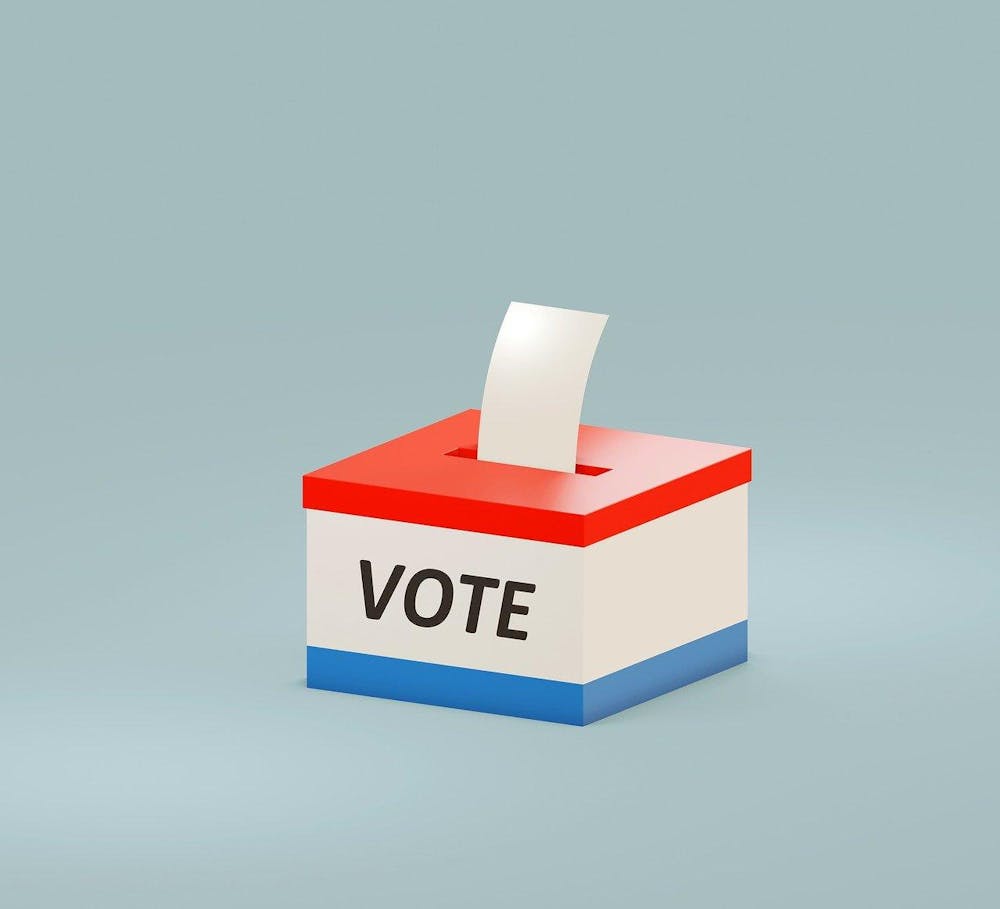North Carolina Lt. Gov. Mark Robinson, a self-proclaimed “Black Nazi,” is scrambling to recover in the state’s gubernatorial race after a bombshell report uncovered his inflammatory and hateful comments on an online porn site. The report and its revelations should be an important lesson to voters: Careful research and consideration of candidates’ character, not just their political party affiliation, matters. While Robinson may not be running for president, the same lesson is true for each role and every race on the ballot this November.
While the single most important election in the United States may be the presidency, races down the ballot are cumulatively more important. These down-ballot races directly impact the efficacy of a presidential administration and the everyday lives of Americans. Voters must do their research, pay careful attention to down-ballot races and consider how political dynamics operate at different levels of government when making voting decisions.
While most of the election coverage that voters hear pertains to the presidential election and centers on Vice President Kamala Harris and former President Donald Trump, several other consequential races are happening in this election cycle. For example, there are seven competitive U.S. Senate races, all for seats currently held by Democrats in swing or red states. Additionally, there are a number of close races in the House of Representatives and a competitive gubernatorial race in New Hampshire.
Down-ballot elections will directly impact the future president’s ability to govern. For example, take Harris’ plan to build an opportunity economy. Her goal is admirable — building an economy in which everyone, regardless of zip code, has the same opportunities to succeed is a step forward in economic equity. Economist Raj Chetty, a professor at Harvard University (Mass.), argued in a recent New York Times op-ed that the most significant thing Harris could do to meet this goal would be issuing an executive order. This order would call upon federal agencies to collaborate with local communities on policy research and implementation to provide better opportunities for all. Without congressional majorities or control of state and local housing programs, zoning and schools, Harris would only be able to control a sliver of the creation of an opportunity economy. Ultimately, it is down-ballot elections that will decide the fate of Harris’ success in the economy and beyond.
Almost every topic of relevance this election season has the same qualifiers. Reproductive rights policies, for example, cannot be changed solely by a president. The Supreme Court of the United States’ decision in Dobbs v. Jackson Women’s Health Organization, which overturned Roe v. Wade, turned the issue of abortion back to states. Now, voters, legislators and governors will all play a significant role in defining reproductive freedoms in their individual states. While Harris has discussed passing a national law codifying abortion protections, top Democrats argue that she would need majority Democratic support in both the Senate and House to do so. Similarly, Trump has prioritized immigration policy, pledging to use the National Guard to carry out the largest domestic deportation in U.S. history. However, local politics across the country may impact his ability to do so. Sanctuary cities, established by local governments’ policies, will generally limit their cooperation with federal immigration officials, making it harder for immigration agencies to carry out their duties.
Down-ballot elections will play an outsized role in dictating not only national political issues but also important issues at the state and local levels. From affordable housing to clean energy, state governments deal with important policies that shape the futures of our communities and the United States. Local governments provide the basic services we rely on and impact issues like police reform and economic development. Focusing on these policy areas is essential to maximizing our collective voting power. Individual candidates may not reflect our beliefs, but strategic voting can help shape a government that does. Our mayors and city council representatives impact our daily lives more than any candidate at the top of the ticket, and our time spent researching their policies before we get to the ballot box should reflect that fact.
This November, there is a lot on the ballot, and you may feel overwhelmed while researching each candidate and issue. Declining local news coverage has made it even harder to find quality information on candidates running for local seats. Here’s the good news: Election Day is a little less than a month away, and there are plenty of resources available online to help you make informed decisions. Find sample ballots online or use candidates’ campaign pages to help you make a plan. It may be cumbersome work, but diligent preparation is necessary to take an active role in shaping the future of our country and, more importantly, your state, city and communities.
Pierce McDade (25Ox) is from Bloomington, Ill.

Pierce McDade (he/him) (25Ox) is majoring in Economics and Political Science. He is from Bloomington, Illinois and enjoys thrifting, movies, books, pickleball, and spending time with friends.






